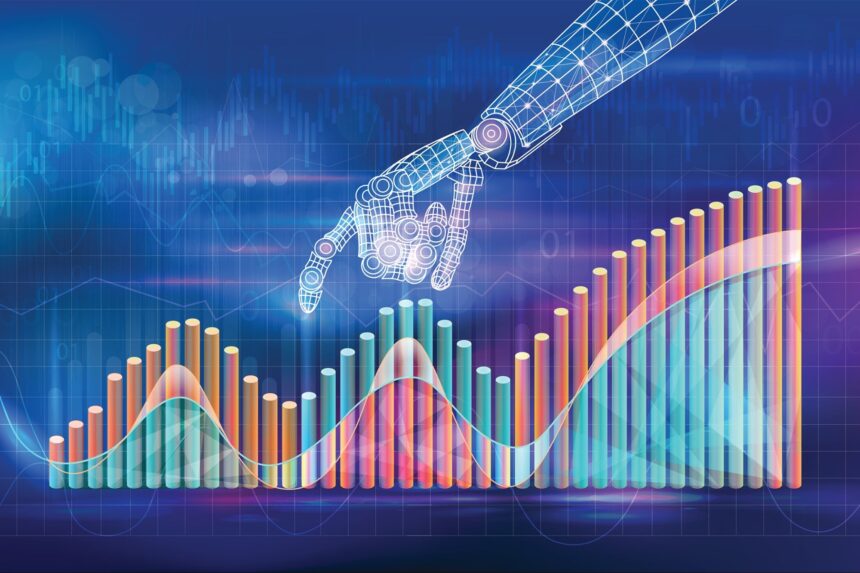Opinions expressed by Entrepreneur contributors are their own.
Imagine if your business could deploy a team of virtual agents that not only execute repetitive tasks but also make strategic decisions, learn, collaborate and adapt in real-time to changing conditions — all at a scale that was once unattainable due to limitations in hiring, capitalization or other constraints. This is the power of agentic AI, a transformative technology that automates business processes, enabling organizations to scale operations, decision-making and innovation exponentially.
In recent years, tools like Robotic Process Automation (RPA) have been deployed to automate repetitive, low-value human tasks such as data entry or simple workflows. While incredibly functional, bottlenecks occur when processes become too complex or require human judgment. These systems lack the flexibility to adapt to dynamic business environments or complex, strategic decision-making processes. Agentic AI changes that. It introduces systems that automate tasks, make informed decisions, and continuously learn and collaborate with humans and other agents to scale and improve outcomes far beyond what was previously possible.
Related: AI for the Underdog — Here’s How Small Businesses Can Thrive With Artificial Intelligence
From thought to exponential action
Agentic AI is differentiated by its ability to move beyond simple, prompt-based AI toward executing complex, multistep workflows at scale. Agentic systems are powered by large language models (LLMs). These can act autonomously across varying digital ecosystems, interact with tools and work seamlessly with other agents. This capability shift enables AI systems to perform strategic tasks at a level that scales with growing operational demands, adapting to unforeseen challenges and managing variability systematically.
Instead of relying solely on human inputs, agentic AI systems can plan, execute and iteratively improve upon tasks — scaling business processes exponentially — and freeing up human resources for higher-order strategic thinking and innovation.
In my industry, when you think of AI’s impact on software development, your mind gravitates towards a scenario where the engineers writing code get automated away by AI bots doing the work. Yet, software development involves more than coding. Most of the problems that emerge in this process stem from either a poor set of inputs (requirements and designs) or poor engineering of the solution (organizing software into logical, reusable and scalable components).
Instead, envision an agentic software development team, several AI agents collaborating to handle the entire software development lifecycle, that streamlines product design and planning, architecture, engineering, coding, testing and deployment across multiple projects simultaneously and allows human teams to focus on the creative and commercial aspects of these projects.
AI in discovery
Weeks of intensive discovery sessions are compressed into two or three reviews of the AI’s results. The AI can produce 90% of the product’s functional exploration. It defines all requirements, user stories, acceptance criteria and more, saving weeks of human labor — often identifying elements that might otherwise be overlooked.
AI in design, architecture and planning
An AI product designer can process the application’s requirements to generate a navigation system and user interface. An AI technical architect creates a detailed architecture, identifying the technology stack and crafting data and application architectures, facilitating the subsequent development steps. And, an AI project manager provides initial timelines and cost estimates — and interacts free-form to adjust efforts based on constraints.
AI in coding
All information captured and generated by the AI becomes an operating system for client and delivery-focused processes. This extensive context feeds the AI coding agent’s generation technology, increasing the specificity and accuracy of software development. This context is equally crucial for human developers. It reduces reliance on their imagination and minimizes project delays and budget overruns caused by lapses in meeting business requirements.
AI in code review
AI pair programmers used for real-time code review ensure that code quality is consistently high and error-free by identifying potential issues early and decreasing rework.
Related: 5 Practical Ways Entrepreneurs Can Add AI to Their Toolkit Today
AI in deployment
AI DevOps agents optimize cloud resources and infrastructure based on real-time utilization demand, enabling more flexible, scalable and cost-efficient operations.
Scaling beyond current limits
Whether developing complex software, managing global supply chains or processing thousands of loans, agentic AI enables your business to operate at a scale that would otherwise require significant increases in manpower and resources.
Are you looking to integrate agentic AI into your operations?
- Identify strategic processes to scale: Focus on high-value tasks that, if scaled, would bring significant gains to your business. Include processes where agentic AI can scale operations without proportional increases in costs.
- Identify and secure data sources to feed scale: Agentic AI systems are highly dependent on the quality and availability of data. It’s critical to identify the data sources (internal and external) that will feed the agents, ensuring that the data is comprehensive and reliable. Without this, agents cannot make informed decisions or improve over time, limiting the ability to scale effectively.
- Encode processes into AI: AI can handle complex processes and large-scale, dynamic operations while continuously improving performance as it scales. This requires documenting the human process and data requirements and encoding AI agents to perform these tasks in parallel, better and faster.
- Leverage multiple agents: A multi-agent approach, where you deploy specialized agents for different roles and allow them to collaborate on complex tasks, can help break down large workflows into manageable parts — executed efficiently by the appropriate AI. Your business can scale processes without the corresponding increase in resources.
- Continuous learning and iteration: Among agentic AI’s greatest strengths is its ability to learn from agentic and human interactions and positive or negative outcomes. Ensure your systems are set up to capture feedback and make adjustments. This continuous optimization allows for improvements as the system scales.
Harness agentic AI — position your business for success
Behemoths like Microsoft, Google and OpenAI already invest heavily in agent-based systems. The tools necessary for widespread adoption will only improve. As agentic AI evolves, businesses that embrace it early will be best positioned to scale exponentially with unprecedented efficiency — without the need for corresponding increases in labor, resources or capital — creating existential crises for slower-moving competitors.
What is most interesting about agentic AI is that businesses that were traditionally considered mom-and-pop or highly service-oriented can now embrace these methods and achieve growth rates, profit margins and scale that were only previously available to pure software businesses.
By positioning agentic AI as part of your roadmap, you can unlock its potential to transform workflows, augment decision-making and create new opportunities for growth.











